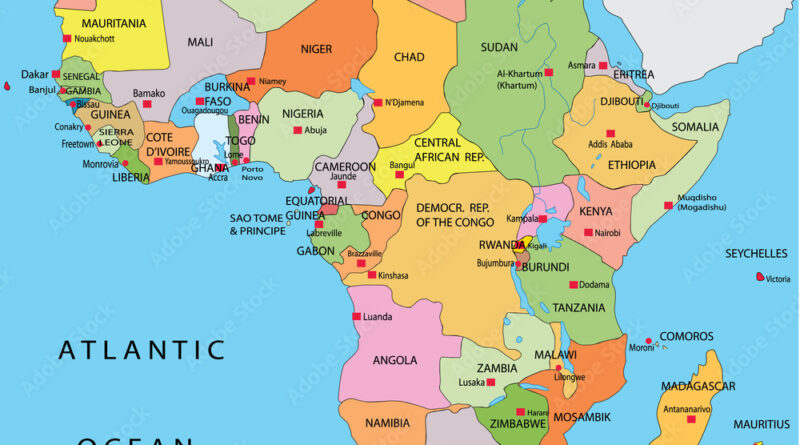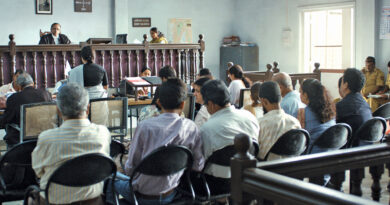Africa’s Forgotten Foundations of Christianity
Africa’s Forgotten Foundations of Christianity
Long before the Gospel reached the shores of Europe, it had already taken deep root in Africa. The story of Christianity cannot be told without Africa, whose people shaped its theology, spirituality, and moral vision. From the deserts of Egypt to the intellectual hubs of Carthage and Hippo, African thinkers and saints helped lay the foundations of the global Church. Their faith and wisdom continue to echo across centuries, reminding the world that Christianity was never a European invention but a global revelation.
The Rise of African Christianity
Christianity spread rapidly across North Africa in the first centuries after Christ. Egypt, Ethiopia, and Carthage became vibrant centers of Christian learning and debate. African Christians produced some of the earliest theologians, martyrs, and monastic movements that defined the shape of the Church. Their writings and witness influenced not only the ancient world but also the development of Western theology for generations to come.
ALSO READ: Nathaniel Bassey Says God Directed Him to His Wife
Tertullian of Carthage: The Voice of Conviction
Tertullian of Carthage, born around 155 AD, was a North African scholar whose work gave Latin Christianity its intellectual foundation. A trained lawyer and fiery defender of the faith, Tertullian was the first major theologian to write in Latin, making the Gospel accessible to the Roman-speaking world. His Carthaginian roots gave his faith a moral depth and strength that reflected African culture’s commitment to justice, truth, and endurance under trial.
He coined the word “Trinity” to describe the Father, Son, and Holy Spirit and defended Christian doctrine with unmatched clarity. His writings challenged idolatry, moral compromise, and persecution, urging believers to live with courage and holiness. Though later criticized for his rigid moralism, Tertullian’s contribution remains vital. His pen gave Christianity its first systematic language of faith and reason, and his bold African voice continues to shape Christian theology to this day.
Augustine of Hippo: The Mind of Grace
A few generations later came Augustine of Hippo, perhaps the most influential Christian thinker in history. Born in 354 AD in what is now Algeria, Augustine grew up amid the cultural blend of Roman and Berber North Africa. His mother, St Monica, prayed tirelessly for his conversion, and those prayers were answered when Augustine, after years of searching, encountered Christ in Milan through the preaching of St Ambrose.
As bishop of Hippo, Augustine wrote works that became pillars of Christian theology. His Confessions is a spiritual autobiography that traces his restless journey from sin to salvation, a work that continues to move readers with its honesty and depth. His masterpiece, The City of God, offered a vision of hope for a collapsing Roman world, teaching that the kingdom of God is eternal even when earthly empires fall.
Augustine’s insights into sin, grace, and divine love shaped both Catholic and Protestant thought. He opposed false teachings like Donatism and Pelagianism, emphasizing that humanity’s only hope is the transforming grace of God. His African heritage gave his faith a distinctive texture rooted in perseverance, communal strength, and the belief that divine grace can redeem even the darkest heart.
ALSO READ: Faith Amid Fire: Christians Mourn and Call for Peace
Moses the Black: A Life Redeemed
In contrast to the scholars of Carthage and Hippo, Moses the Black’s story speaks of transformation from violence to holiness. Once a feared gang leader and thief in Egypt, Moses’s life was changed when he sought refuge in a desert monastery. There, he encountered the love of Christ and began a journey of repentance that turned a criminal into a saint.
Moses became a monk and later a priest, known for his humility and compassion. When accused of sin, he carried a leaking bag of sand on his back to show that his own faults were many and unseen, saying, “My sins run out behind me, and yet I come to judge my brother.” His humility inspired his fellow monks and countless Christians after him.
He was later martyred when raiders attacked his monastery. Refusing to fight back, he accepted death with peace and forgiveness, showing that true strength lies not in violence but in grace. His story remains one of the most powerful examples of redemption and divine mercy in Christian history.
A Legacy to Reclaim
The stories of Tertullian, Augustine, and Moses the Black remind the Church that Africa was not a latecomer to Christianity but its cradle. These saints embodied the intellectual rigor, spiritual depth, and moral courage that continue to sustain the faith. Their voices call today’s believers to rediscover the African foundations of the Church and to honor the continent’s enduring witness to Christ.
From the pens of theologians to the prayers of martyrs, Africa’s contribution to Christianity is woven into the very heart of the Gospel story. The Church today stands on the shoulders of these giants of faith—proof that God’s light has always shone brightly from Africa.
Content Credit: Ohidah Oluwaferanmi
Image Credit: stockadobe.com




